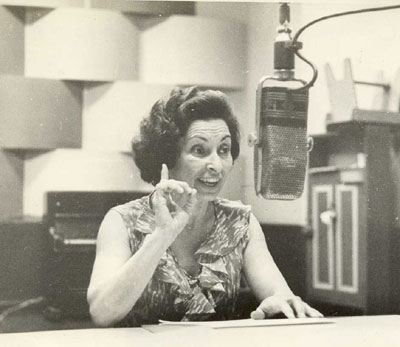11.11.1 Juana Rivero Casteleiro (Cuca Rivero)

Juana Rivero Casteleiro, better known as Cuca Rivero, was a distinguished Cuban pianist, choir director, and teacher. She was born on June 17, 1917, in Candelaria, Pinar del Río province. As a child, she moved to Guanajay. Her musical training took place at the local music academy. She studied guitar in Havana with Clara Romero. She also studied at the Reventós Conservatory in Havana. She took ballet classes at the Pro-Arte Musical Society. Cuca Rivero also holds a doctorate in pharmacy, is an art instructor, and is a cultural promoter.
In 1953, she introduced choral groups to Cuban television. In 1954, she founded the first choral group associated with television programs, the Cuca Rivero Vocal Ensemble. During the 1960s and 1970s, Juana Rivero served as principal conductor of the Cuban Institute of Radio and Television Choir. She also led the Teatro Lírico choir.
In the 1960s, Juana Rivero worked at the National Lyric Theater of Cuba and directed the choirs for its first productions. These included The Merry Widow (1962) and Luisa Fernanda (1963). Also in 1962, she participated in the 7th World Festival of Youth and Students, held in Helsinki, Finland, as director of the mixed choir of the National School of Art Instructors, which was part of the Cuban delegation and comprised of forty voices.
In 1990, he conducted the choir that performed the complete recording of Cecilia Valdés, directed by Félix Guerrero, for the EGREM (Spanish Association of Musicians of the Spanish Music Association). In 1997, he compiled the catalogue of Cuban composer José María Vitier. It was published by SGAE (Spanish Association of Musicians of the Spanish Music Association) and the Fundación Autor (Madrid Autor Foundation). It was presented in 1998 during one of the sessions of the 9th Havana Guitar Competition and Festival.
Juana Rivero Casteleiro is the founder of Cuban Television, where she appeared on numerous programs in its early years. She worked at the Cuban Institute of Radio and Television, where she served as principal conductor of its choir. She formed the Havana Choral Society. She is also the founder of the National Lyric Theater of Cuba. She has produced choral productions of symphonic works and zarzuelas.
She made contributions to the Ministry of Education’s music education plan. With the goal of creating a tradition of collective singing in Cuba, Cuca Rivero both designed and hosted the radio program that brought music education to primary schools. This program covered preschool through fourth grade. Hence, she became known as the “invisible teacher.”
Throughout her artistic career, Juana Rivero Casteleiro was awarded prizes such as Distinction for National Culture, Alejo Carpentier Medal (1999), National Television Award (2003), National Music Award (2005).








